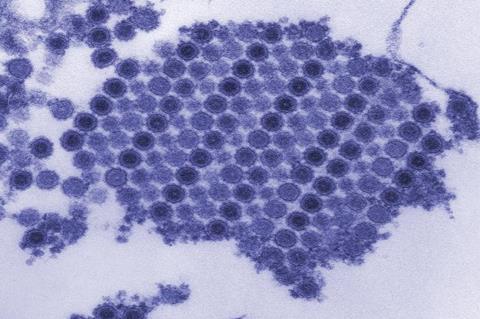Valneva SE has announced that the first participant has been vaccinated in the Phase 2 clinical trial evaluating the safety and immunogenicity in children of two different dose levels of Valneva’s single-shot chikungunya vaccine.

The company reported positive pivotal Phase 3 data in adolescents two months ago confirming the immunogenicity and safety profile observed in adults.
There is currently no approved chikungunya vaccine for children and Valneva’s vaccine IXCHIQ® is currently the only licensed chikungunya vaccine to address this unmet medical need in adults aged 18 years and older who are at increased risk of exposure to the virus. Once available, the Phase 2 pediatric data are intended to support a Phase 3 pivotal study in children with the objective to extend the label in this age group following initial regulatory approvals in adults and possibly in adolescents.
Phase 2 clinical trial
The multicenter, prospective, randomized, observer-blinded, Phase 2 clinical trial is planned to enroll approximately 300 healthy children one to eleven years of age at three trial sites in the Dominican Republic and Honduras. Following a safety run-in phase, participants will be randomized to receive either a full dose formulation of the vaccine (120 participants), a half dose formulation (120 participants) or a control vaccine (60 participants).
Juan Carlos Jaramillo M.D., Chief Medical Officer of Valneva, said: “This pediatric trial is extremely important. Given the significant threat that chikungunya poses to individuals living in or traveling to endemic areas, it is crucial to make the vaccine accessible to all age groups. By doing so, we can broaden the protection against and reduce the impact of this debilitating disease.”
Valneva was granted approval from the U.S. Food and Drug Administration (FDA) for its chikungunya vaccine IXCHIQ® in November 2023. Three marketing applications are currently under review by the European Medicines Agency, Health Canada and the Brazilian Health Regulatory Agency (Anvisa) with potential approvals in 2024.
Mosquito-borne disease
Chikungunya is a mosquito-borne viral disease caused by the chikungunya virus (CHIKV), a Togaviridae virus, transmitted by Aedes mosquitoes. Infection leads to symptomatic disease in up to 97% of humans after four to seven days following the mosquito bite.
While mortality with CHIKV is low, morbidity is high, and the global market for vaccines against chikungunya is estimated to exceed $500 million annually by 2032. Clinical symptoms include acute onset of fever, debilitating joint and muscle pain, headache, nausea, rash and chronic arthralgia. Chikungunya virus often causes sudden large outbreaks with high attack rates, affecting one-third to three-quarters of the population in areas where the virus is circulating.
The high-risk areas of infection for travelers are places where chikungunya virus-carrying mosquitos are endemic, including the Americas, parts of Africa, and Southeast Asia, and the virus has spread to more than 110 countries. Between 2013 and 2023, more than 3.7 million cases were reported in the Americas and the economic impact is considered to be significant.
Growing threat
The medical and economic burden is expected to grow as the CHIKV primary mosquito vectors continue to spread geographically. Before IXCHIQ®, there were no preventive vaccines or effective treatments available and, as such, chikungunya is considered to be a major public health threat.
To make the vaccine more accessible to Low- and Middle-Income Countries (LMIC), Valneva and Instituto Butantan in Brazil signed an agreement in January 2021 for the development, manufacturing and marketing of VLA1553[8]. The collaboration falls within the framework of the agreement signed between CEPI and Valneva in July 2019[9], which provides funding of up to $23.4 million with support from the European Union’s Horizon 2020 program.
In the U.S., IXCHIQ® is a live-attenuated vaccine indicated for the prevention of disease caused by chikungunya virus (CHIKV) in individuals 18 years of age and older who are at increased risk of exposure to CHIKV. As for all products approved under FDA’s accelerated approval pathway, continued approval for this indication is contingent upon verification and description of clinical benefit in confirmatory studies.







No comments yet